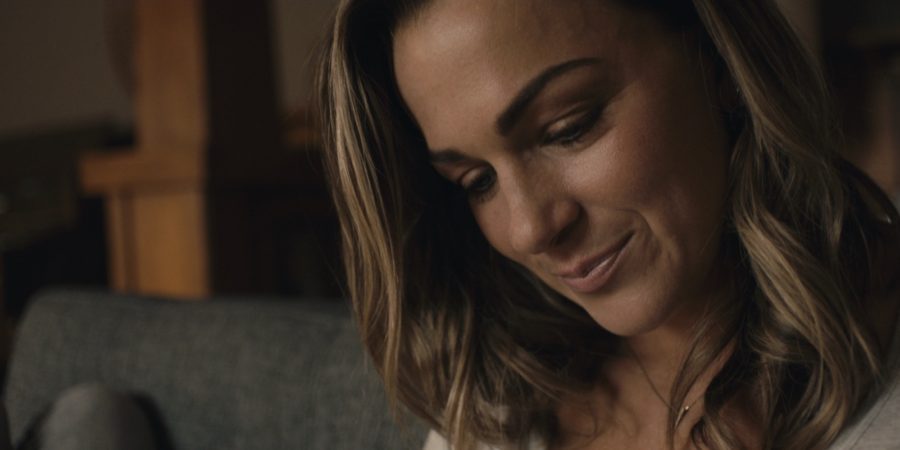Growing up in conservative Indiana, Liz Baxter was never exposed to gay or lesbian people. She dated men, but she never really connected with anyone, and she wasn’t sure why. When Baxter was 21, she had her first experience with a woman, but she thought it was just a one-time thing.
A few years later, after meeting lesbians for the first time and making out with one of them, a lightbulb went off: she was gay. It was easy for Baxter to accept this about herself, but she struggled to come out to friends and family. She gradually came out to everyone, and when she was 27, she moved to Los Angeles, where she was able to live freely and comfortably as a lesbian.
By day, Baxter currently works as a traveling medical sales rep, and she has a loving girlfriend. In her free time, she occasionally posts videos on her YouTube channel, where she talks about life as a femme lesbian. Baxter has found that while this identity comes with privilege — people don’t automatically assume she’s gay when they look at her — it means she has to constantly come out and deal with people who don’t believe her when she says she’s a lesbian.
Baxter, now 33, gained more visibility when she was the first lesbian to appear on the reality television show “Love Connection” with Andy Cohen in July of 2017 — a reboot of the classic dating show. She also recently created and co-directed a beautiful short film, “Female Connection,” which has no spoken words. Based loosely on her life experience, the film follows a gay woman, played by Baxter, whose heart is broken by a woman questioning her sexuality. But unlike most films that tell this lesbian/“straight girl” storyline, hers also captures the heartache and regret felt by the woman who feels pressured to return to the straight world. Baxter’s short film was just featured at several film festivals.
Read on for our interview with Baxter, where she discusses coming out as lesbian, creating a powerful short film about same-sex love, the importance of sharing your story, and working to be more visible as a femme lesbian.
Profiles in Pride: When did you realize you were lesbian, and what did your coming out process look like?
Liz Baxter: I feel like I came out a little bit late in life, but then you hear other people’s stories that are much much later, so I am grateful that I figured things out fairly early. My first experience with a woman was when I was 21, but it was in another country, she was married, and I just attributed it to a one-off connection with that person.
In college I was still dating men, but there was nobody who had given me butterflies; nobody I was in love with. I dated a lot of solid, cute, fun people, but nobody ever gave me that feeling. I thought it was because I just hadn’t met the right guy yet.
Then when I was 23, an old high school friend wanted to meet up for a drink. I walked into the back of the bar where she and her friends were, and it was a bunch of girls who clearly looked like lesbians. I felt out of my comfort zone; I’d never spent time with a lot of lesbians! I wondered what they’d think of me, and I was so self-conscious. That night I had a lot of drinks, I loosened up, and I ended up making out with one of the girls. I woke up the next morning and I was like, “Oh my God, I’m a lesbian.”
There was no fight for me. Once I knew, I knew. I realized this is why things had happened with the other woman. It wasn’t because of the connection — it was because I was gay. I’d never met anyone who identified as gay who I was also attracted to. I think I just wasn’t exposed to lesbians, but once I was, I realized, “This is me.” It felt different than anything ever had.
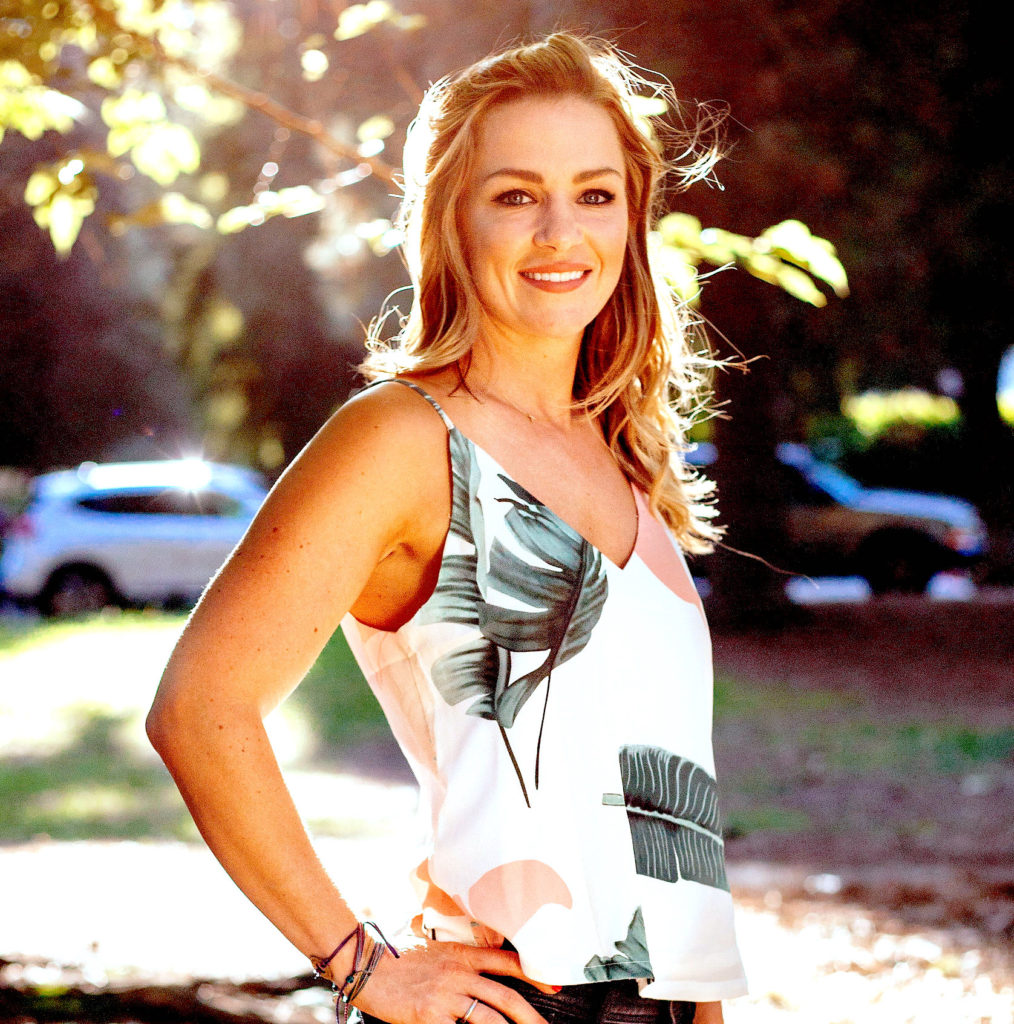
A lot of people battle with themselves for a long time. I couldn’t believe it was happening, but I’m grateful I didn’t really fight it. I didn’t feel like I wasn’t sure; I just thought, “This is it.” But the process of coming out to other people was more difficult, and I was really afraid to tell people. I started hanging with my lesbian friends, but I kept it super separate from the rest of my life, because I thought, “All these people have known me my whole life — what are they going to think?”
I started slowly telling people I trusted one by one, because I was nervous; Indiana is not the most gay-friendly. I feel like whenever you’re a femme lesbian, you have a privilege of sorts, where people don’t know you’re gay right off the bat, so they treat you just like everyone else. But it’s also bad because you have to explain yourself and have people not believe you.
Living in Indiana, I walked into a restaurant or my workplace, and people didn’t assume I was gay. It almost made it harder for me, because people were like, “What? Really?” But I found that people were more curious than turned off or weirded out; they mostly had a lot of questions. I started to embrace that; I realized people just don’t know. They’re not exposed to it, so they’re curious. “Oh my gosh, lesbians can look like you?” Yes, they can look like all kinds of people!
PIP: Absolutely. How did your family take it?
LB: My family was good, but I think they didn’t know how to be supportive. My mom didn’t say a lot; she just said, “OK,” and never really brought it up again. My dad was like, “We don’t care, we love you, it doesn’t matter.” And he never brought it up again.
Since they didn’t bring it up again, I wondered what it meant. Does this mean you’re OK with me bringing my girlfriends around? Does this mean you’re OK with me bringing my gay friends around? I still doubted myself. So it took me a while to bring girlfriends around. Now my parents are really amazing and supportive and ideal; I think I didn’t give them enough credit at the beginning.
I was so nervous about what they would do or say that I made them uncomfortable to ask me about it. I believe you have to set the precedent in relationships for what you want from them, especially your parents: “Here’s what I expect; I need your support and love, and here’s what that looks like.” They need direction.
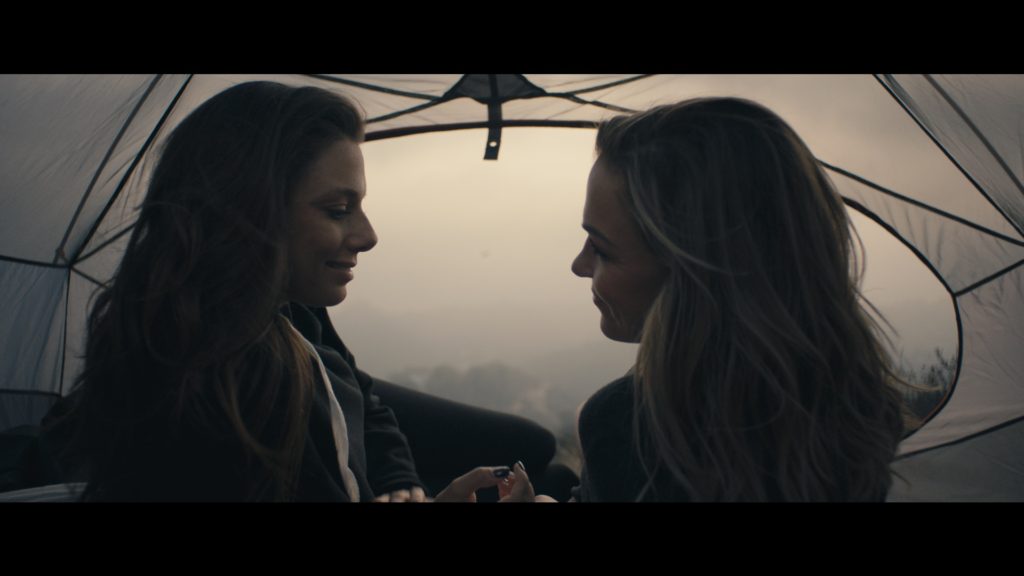
PIP: That’s a great point. Tell me about your short film “Female Connection,” which follows the love life of a femme lesbian — what made you want to create it?
LB: A personal experience or two! There’s a lot of amazing content out there, and everybody has their own experiences. At first I was like, “I don’t want to make another video about a lesbian getting her heart broken by a straight girl.” I wanted it to be a little bit different. I think having no words makes it more ambiguous. The viewer isn’t exactly sure if the woman is straight, if she’s bi…it’s a lot of interpretation.
I think if you’re able to have a connection with another woman, on some level it makes you not completely straight. I hate vilifying straight women, but I had an experience where a woman was dating a man for a long time, they broke up, and she came onto me. She said, “I’ve been having these feelings and I want to give it a try.” I said OK, and we had a lot of fun, but she didn’t want to say we were dating or in a relationship. She was like, “I’m feeling more comfortable over here [in the straight world], even though I have this relationship with you.” At the end of the day, I had to back away from it and move on. I was fine, because I was being true to myself.
Did it hurt? Yes. But I almost feel bad for her, because I wonder if she has a lot more what-ifs and baggage moving forward. She’s married to a man now. Even if she’s happy, I feel bad for people who aren’t in a place where they feel comfortable enough to just live an experience and not worry about what it means. They should just follow their heart and go with the connection and not worry about “Does this mean I’m a lesbian?” or what it means or identifying in a certain way.
I wanted to have more people see both sides of the experience. I think there are so many stories about this, but there are also so many single straight love stories, and there will still be more movies coming out about it, because it’s relatable.
I think there are a lot of lesbian and queer folks who can relate to falling for someone who isn’t willing to show up in one way, shape, or form for one reason or another, and you know they’re capable of more but just aren’t willing to do it. You have to let that go, and you’re able to move on and heal from that, and maybe they take more regret with them, or maybe not.
I think it’s important to share whenever you have a story that you’re affected by that comes with a lot of emotion, because there will always be someone who can relate to it and say, “Oh my gosh, this happened to me too.” Even if it’s a story that’s been told, I think the more content we have, the more we’re represented.
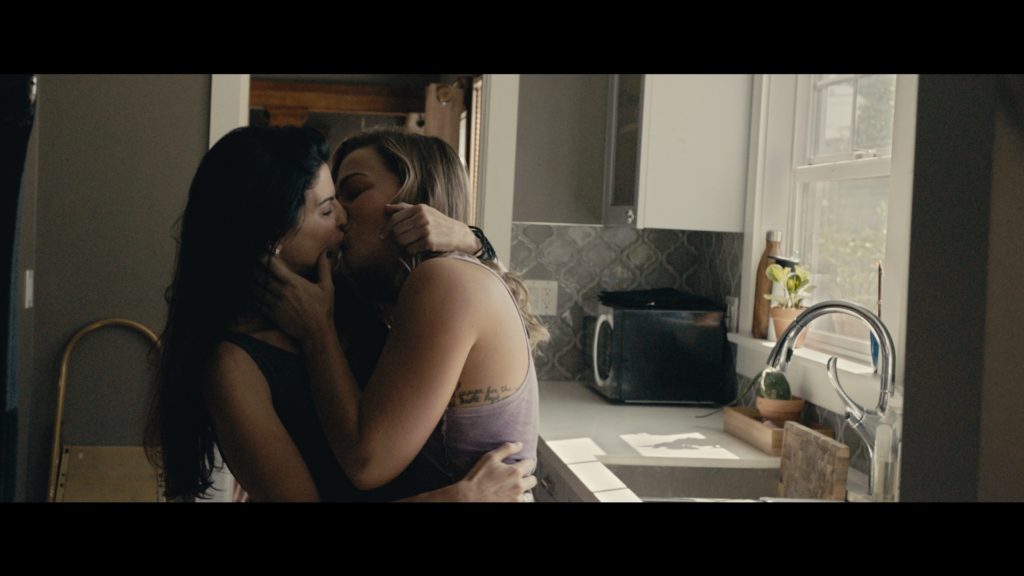
PIP: Yes, I feel most stories focus on the side of the gay girl who gets her heart broken by “a straight girl,” or she wins her over. I thought it was interesting how your film also showed the pain and regret the “straight girl” felt when things ended.
LB: Yes, it’s hard being the other person. She crushed me for a little bit. I could tell she had the same feelings for me that I had for her, so I knew it had to be hard for her too. I just hope she’s happy, because I don’t want anybody to take too much regret with them. I felt bad because the main reason she didn’t want to date me was that she had a lot of shame around her family, and she didn’t want to tell them.
My thing was like, so what if you end up with a man? You didn’t really give this a go. It was always secretive. As soon as we’d have a good date or a good weekend together, she’d disappear for the week. It was hard. The story in the film is not by any means all the details, but it’s the sentiments.
I just wanted to show that when you are being true to yourself, you will move on. Yes, there’s heartbreak, but there’s always heartbreak when things don’t work out, even if it’s with another queer or lesbian person. But I think there’s the other side of things: you can at least feel good that you were able and willing to show up, and because of that, somebody else will come along for you.
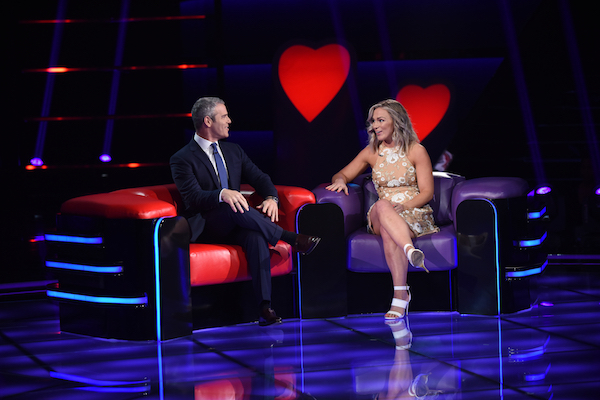
PIP: I love that. So you were on the dating show “Love Connection” last summer — how did that happen?
LB: It happened because a friend of mine is a casting director primarily for reality shows. She called and asked if I wanted to be on a dating show on television. I said no. She said, “They’re looking for a lesbian, and I think you’d be great for it!” I grew up watching MTV’s “Singled Out” and shows like that, but I have a corporate job, and I didn’t want to act a fool. I don’t mind being gay on TV, but a lot of reality shows are a source of entertainment, so sometimes being a normal gay person isn’t enough; you have to also be crazy or go home with someone, so I turned it down.
A few weeks went by and she called back saying they’re still looking for somebody, particularly a femme girl. I said I’d think about it, and I sent her a couple names. But I felt like the universe was sending me a message since it came back to me; I wondered, why am I not doing this? I called her and asked if it was a classy show or if I’d have to get drunk or go home with someone.She said it was legit and that I could be myself, so I said I’d consider it, and then I went for it. It was a big, long interview process. They make you do a psychological evaluation, background checks, and you even have to get STD testing!
When I signed to be on the show, they didn’t tell me whether I’d be the one going on the three dates or be one of the three dates. You don’t know what to expect — you just have to sign up, and depending on who’s finalized, they decide who’s the one they want to go on the dates versus be one of the dates. I was so glad I got to be the one who goes on three dates! It ended up being awesome; it wasn’t staged, and all three of the girls were cool. I was really happy with the experience and how it came across. They didn’t make it too dramatic, which is great since some of the other episodes were insane!
The girl I picked was super cute and smart, and I thought it could be a good match. I ended up dating her for a couple months. It didn’t work out, but it was a good shot!
PIP: What a fun experience! So I know you have a YouTube channel; tell us a little about it.
LB: I mostly make videos about being a femme lesbian; the good parts and the hard parts. I’ve made videos about online dating and just about being a lesbian. For me, all I can do is represent who I am and hope that every member of the LGBTQ community is putting out content and representing themselves, because I can’t represent everybody.
So it’s basically me talking about stuff that affects me, and trying to get feedback from people. I get a lot of people who are like, “Wow, I showed this video to my mom and it helped her understand I’m not weird just because I’m gay!” It’s a lot of experiences I’ve had that I feel are relatable, and sharing them in video log format.
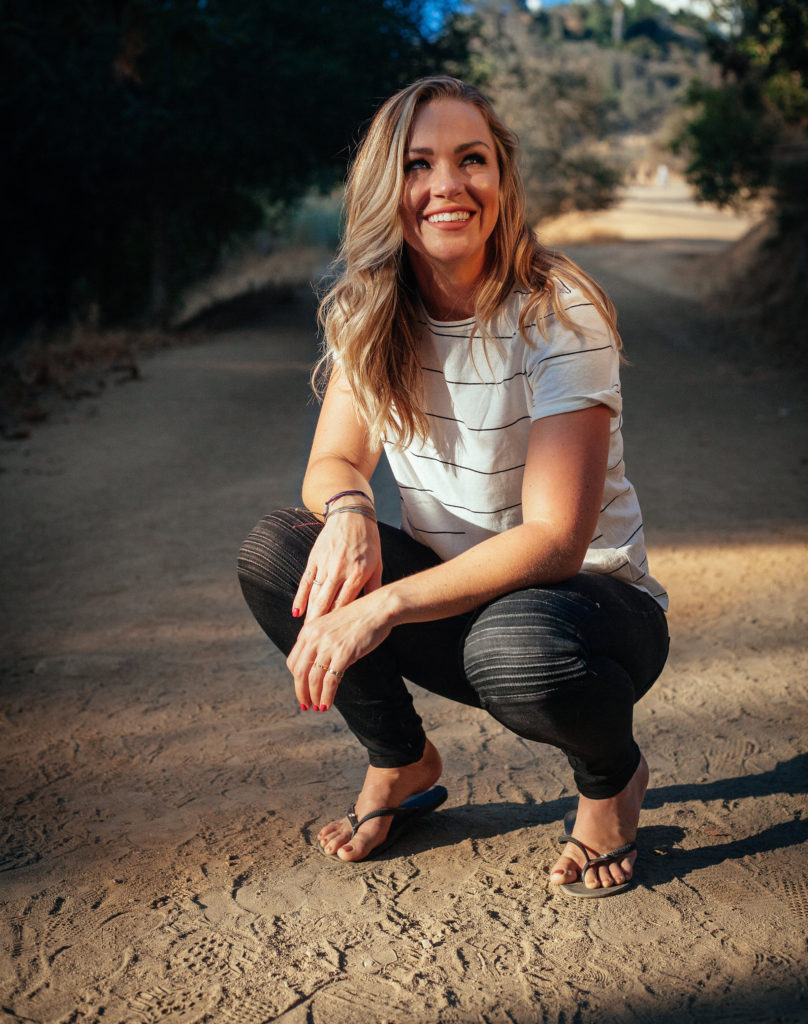
PIP: Before we go, is there anything else about your life you’d like to share?
LB: I’m just a normal person trying to get through life. But I think for any person out there, you never know who you’re going to impact by sharing on whatever platform you have, whether it’s social media or with your friends.
You never know who will read something. Maybe it’s an old friend who sees your post, and maybe they don’t know anyone who’s gay and they think they’re gay. You never know how what you put out there will affect people.
I always encourage people, even if they don’t feel like their story is important enough or they don’t have enough followers or they’re just like everybody else or they’re not like everyone else — I encourage everyone to share their experiences and their stories in whatever way they feel comfortable. I never thought my story was that noteworthy at all; I feel like I’m just a normal femme lesbian in LA! But I think it’s important that everyone tells their story and there’s as much content out there as possible that people can relate to so we’re represented and understood.
Keep up with Liz on Instagram at @lizbinla.

